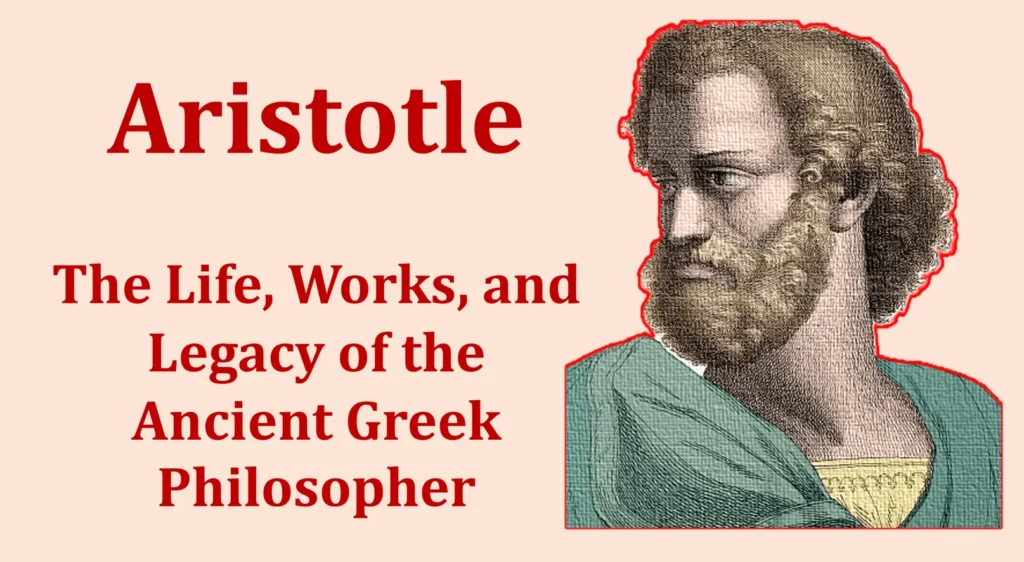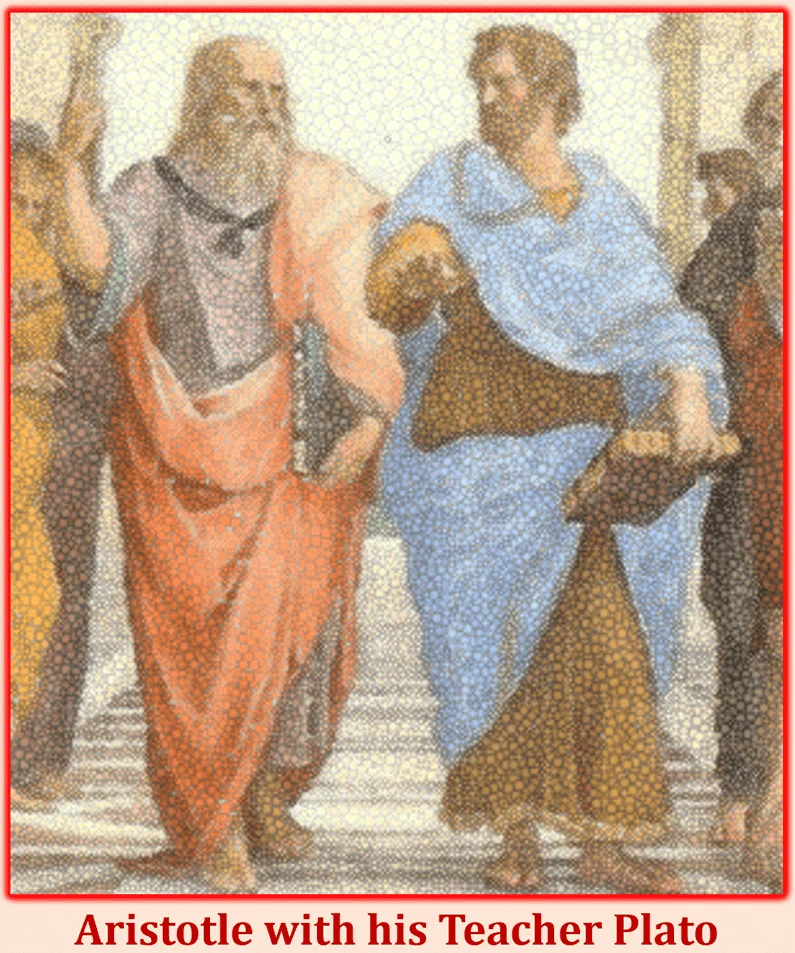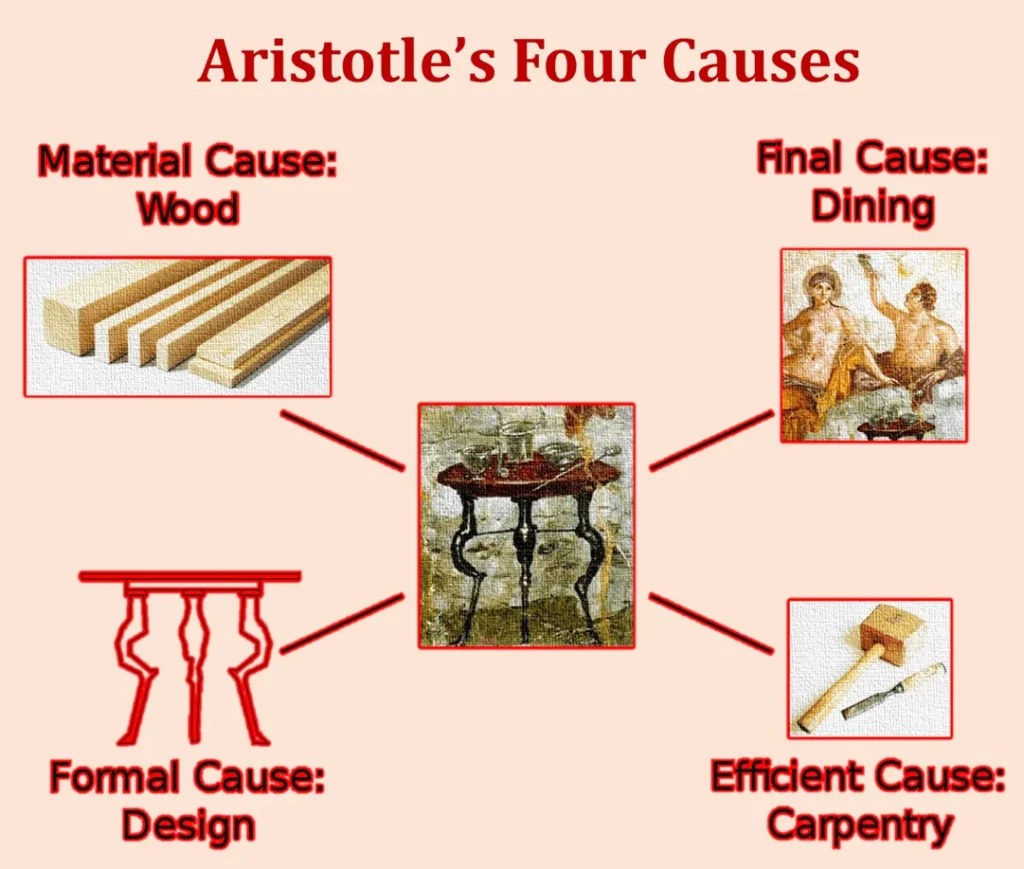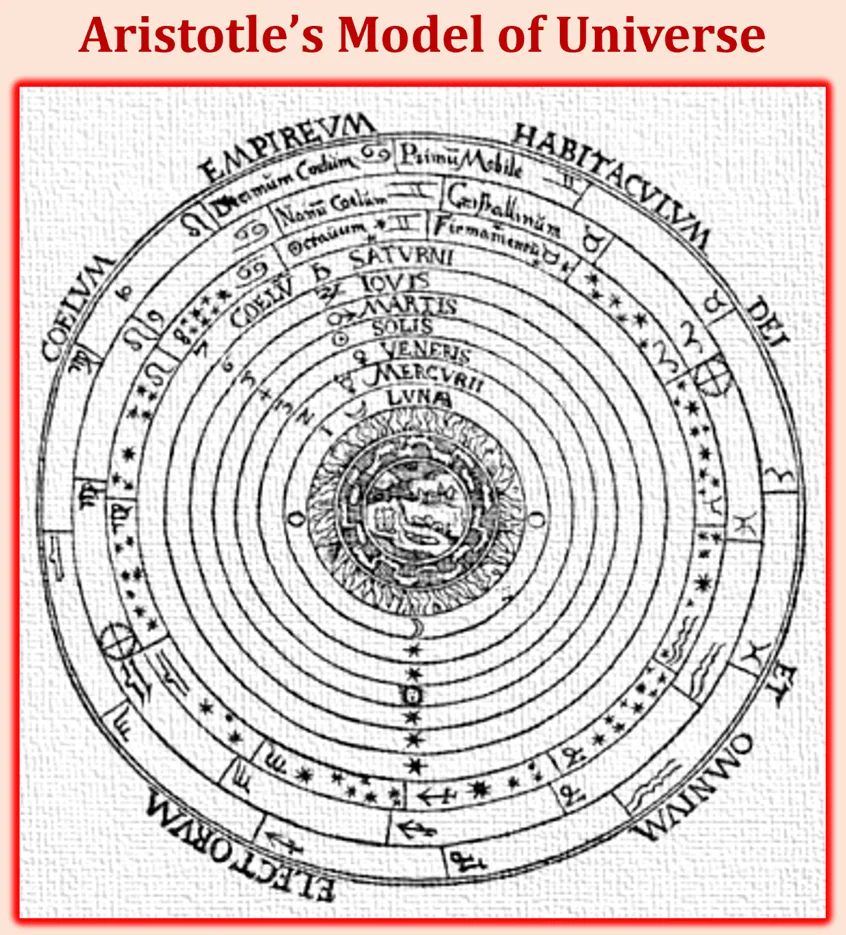
Introduction to Aristotle
Aristotle, one of the most influential thinkers in human history, emerges as a towering figure in the realm of philosophy. From his early life and education to his noteworthy contributions in various fields, his legacy continues to shape our understanding of the world. In this blog post, we will delve deep into his life, explore his works, and examine the lasting impact he has had on numerous disciplines.
Early Life and Education
Stagira, a tiny hamlet in northern Greece, is where Aristotle was born in 384 BCE. His father, Nicomachus, was a court physician to King Amyntas of Macedon, which provided him with opportunities for privileged exposure to knowledge from an early age. At the tender age of 17, he ventured to Athens to study under the tutelage of none other than Plato, another renowned philosopher of his time.
He studied a great deal of topics under Plato’s tutelage, including biology, politics, ethics, and metaphysics. But as time passed, his philosophical disagreements with Plato became more apparent, and eventually the latter left Plato’s Academy.
Influence of Plato on Aristotle’s Philosophy
While he eventually diverged from his teacher’s philosophical approach, Plato undeniably played a pivotal role in shaping his intellectual development. Plato’s emphasis on the realm of ideas and the concept of the Forms greatly influenced Aristotle’s early works.

However, Aristotle’s departure from Plato’s idealism gave birth to his own unique philosophical framework. He rejected the notion of transcendent Forms and instead focused on the concrete realities of the natural world. This marked a fundamental shift towards empiricism and observation, which became foundational to his future contributions in various fields.
Aristotle’s Notable Contributions to Different Fields
His vast range of interests and expertise allowed him to make significant contributions to numerous areas of study. Let’s explore some of his notable achievements in different fields:
- Metaphysics and Epistemology: His treatise on metaphysics, aptly titled “Metaphysics,” is a cornerstone of Western philosophy. In this work, he propagated the concept of substance and essence, and introduced the famous principle of non-contradiction. Moreover, his epistemological theories laid the groundwork for the scientific method.
- Ethics and Virtue: His ethical framework revolves around the concept of virtue and flourishing. In his renowned work “Nicomachean Ethics,” he argues that living a virtuous life leads to eudaimonia, a state of genuine human flourishing.
- Politics and Governance: HIs keen interest in politics led to his magnum opus “Politics,” where he explores different forms of government and offers insights into the ideal state. His ideas on democracy, citizenship, and the role of education in governance still have relevance in modern political discourse.
- Biology and Zoology: His contributions to biology and zoology were groundbreaking. His work “Zoology” not only classified and described various species but also observed their behavior, anatomy, and habitats. Although some of his ideas were later proven inaccurate, his approach paved the way for scientific inquiry into the natural world.
- Logic and Rhetoric: His logical and rhetorical theories are renowned for their precision and influence. In his treatise “Organon,” he introduced syllogistic logic and formulated principles of effective persuasion, a foundation for the discipline of rhetoric.
“The ultimate value of life depends upon awareness and the power of contemplation rather than upon mere survival.”
– Aristotle
Aristotle’s Philosophical Foundation
The Concept of Telos and Final Causality
One of the greatest minds in history, laid the philosophical foundation that continues to shape our understanding of the world. At the core of his philosophy is the concept of telos, which refers to the inherent purpose or end towards which something strives. Unlike his predecessor Plato, who focused on the abstract realm of ideal forms, he believed that everything in the natural world has a telos and a distinct purpose.
According to him, final causality provides a deeper understanding of causation. While the modern scientific approach emphasizes efficient causality (cause and effect), his final causality emphasizes the goal or purpose behind an action or a phenomenon. For example, when a seed grows into a tree, he would argue that the final cause is not merely the physical process of growth, but rather the fulfillment of the tree’s purpose to provide shade or bear fruit.
Four Causes: Material, Formal, Efficient, and Final Causes
To further explain his concept of causality, he introduced the four causes. These causes provide a comprehensive framework for understanding the nature of things:
- Material Cause: This cause refers to the matter or substance from which something is made. For instance, the material cause of a sculpture is the marble from which it is carved.
- Formal Cause: The formal cause pertains to the form, structure, or essence of an object. It encompasses the characteristics or properties that define what something is. Using the previous example, the formal cause of a sculpture would be the artistic design or concept behind it.
- Efficient Cause: This cause represents the agent or force that brings about change or initiates an action. It is related to the idea of cause and effect, emphasizing the means through which something is accomplished. In the case of the sculpture, the efficient cause would be the sculptor who carves it out of the marble.
- Final Cause: As mentioned earlier, the final cause refers to the ultimate purpose or goal of something. It highlights the end or telos that drives the existence or development of an object or action. In the context of the sculpture, the final cause could be the sculptor’s intention to create a masterpiece that evokes emotion in the viewers.

By contemplating these four causes, he encouraged a more holistic view of causality, intertwining purpose and intention with physical and efficient processes.
The Framework of Substance and Essence
His philosophical framework also revolves around the concepts of substance and essence. Substance refers to the fundamental reality of an object or entity. It represents the underlying nature or essence that distinguishes one thing from another. For him, substance exists independently of its properties and accidents.
Essence, on the other hand, relates to the defining characteristics that make something what it is. It captures the essential qualities that constitute the nature of a being or an object. For instance, the essence of a human being goes beyond physical attributes; it encompasses rationality, consciousness, and a capacity for moral agency.
His emphasis on substance and essence emphasizes an ontological understanding of reality. By studying the underlying nature of things, he sought to uncover universal truths and principles that govern the world we inhabit.
“The whole is more than the sum of its parts.”
– Aristotle
Aristotelian Ethics and Virtue Theory
Ethical Virtues and the Doctrine of the Mean
Aristotle believed that ethical virtues were at the core of leading a good life. Unlike other philosophers of his time who focused on rules and laws, Aristotle emphasized the importance of virtues such as courage, generosity, and honesty. These virtues, according to Aristotle, were not innate qualities but rather habits that could be cultivated through practice and repetition.
One of Aristotle’s most significant contributions to ethics is the Doctrine of the Mean. According to this doctrine, moral virtues lie between extremes – the excess and deficiency of certain qualities. For instance, bravery is situated in between cowardice and recklessness. By finding the balance between these extremes, one can achieve moral excellence.
Aristotle’s concept of the Doctrine of the Mean is not only a guide for individual morality but also a blueprint for creating harmonious societies. It encourages people to strive for equilibrium and avoid extremism, creating a conducive environment for social cohesion and cooperation.
Eudaimonia: The Ultimate Goal of Human Life
For Aristotle, the ultimate goal of human life was eudaimonia, often translated as “flourishing” or “living well.” Unlike hedonistic pursuits that focus on momentary pleasure, eudaimonia represents a deeper sense of fulfillment and well-being derived from leading a virtuous life.
According to Aristotle, eudaimonia is achieved by exercising one’s rational capacities and living in accordance with virtues. Virtuous actions are not means to an end but rather ends in themselves. The cultivation of virtues is essential for achieving eudaimonia, as they contribute to an individual’s moral and intellectual growth.

Modern psychology and positive psychology, in particular, have found resonance with Aristotle’s concept of eudaimonia. Researchers have discovered that a sense of purpose, engagement, and positive relationships are key factors in achieving a fulfilling and meaningful life. By focusing on eudaimonia, individuals and societies can aspire to build lives that transcend mere material success and prioritize holistic well-being.
Criticism and Modern Applications of Aristotle’s Ethics
While Aristotle’s philosophy has left an indelible mark on the fields of ethics and virtue theory, it is not without its criticisms. One criticism is that Aristotle’s framework of ethics heavily relies on the idea of a virtuous agent. However, in today’s complex world, individuals face diverse moral dilemmas and conflicting virtues that may not be easy to navigate.
Additionally, Aristotle’s ethical system has been accused of being too rigid and lacking flexibility. Critics argue that it fails to account for the moral complexities that arise in modern society. Furthermore, the doctrine of the mean can be interpreted differently by different individuals, leading to moral relativism and subjectivity.
Nevertheless, Aristotle’s ethical framework still holds relevance in many practical situations. It provides a robust foundation for assessing character, evaluating moral choices, and developing virtues. By focusing on the cultivation of virtues and aiming for moral excellence, individuals can make informed decisions and contribute positively to society.
Aristotle’s Understanding of Politics and Governance
Aristotle, the renowned ancient Greek philosopher, delved deeply into the realm of politics and governance. His analysis and understanding of these concepts have had a lasting impact on political thought throughout history. In this section, we will explore Aristotle’s views on natural slavery, the hierarchy in society, different forms of government, and his vision of an ideal state.
Natural Slavery and the Hierarchy in Society
Aristotle believed in a natural order and hierarchy within society. He argued that some individuals are born to be slaves while others are destined to rule. This concept of natural slavery was not based on race or ethnicity but rather on individuals’ inherent qualities and capabilities. According to Aristotle, slaves are those who lack the rational capacity to govern themselves and require the guidance of a master.
This understanding of natural slavery can be seen as problematic and controversial in modern times. The idea that certain individuals are destined to be slaves goes against the principles of equality and human rights. However, it is crucial to understand Aristotle’s views in their historical context and acknowledge the evolution of societal values since then.
Forms of Government: Democracy, Aristocracy, and Tyranny
- Aristotle classified different forms of government based on the number of rulers and the interests they serve. He recognized three main types: democracy, aristocracy, and tyranny.
- Democracy: Aristotle defined democracy as the rule by the people. He saw it as a system where all citizens have a say in the decision-making process. However, he also highlighted the risks associated with democracy, such as the potential for majority tyranny and the influence of demagogues.
- Aristocracy: Aristotle viewed aristocracy as the rule by the virtuous and wise few. He believed that a small group of elites, who possess the necessary virtue and wisdom, should govern the state. This form of government aimed to prevent the excesses and fluctuations of democracy.
- Tyranny: Aristotle considered tyranny as the rule of a single individual who seeks power for their own self-interest. Tyranny arises when a leader pursues personal gain at the expense of the common good and violates the laws and norms of the society.
It is important to note that Aristotle did not see any of these forms of government as inherently good or bad. He recognized that each type has its strengths and weaknesses, and their success depends on the virtuous character and moral judgment of the rulers.
The Ideal Polis: Aristotle’s Vision of an Ideal State
Aristotle envisioned an ideal state, known as the polis, that would embody the principles of justice and the common good. In his view, the polis should be a self-sufficient and self-governing community that pursues the highest human good. Key elements of Aristotle’s ideal polis include:
- Citizenship: Aristotle emphasized the importance of active citizenship in the polis. He believed that individuals should participate in public life, contribute to the governance of the state, and fulfill their civic duties.
- Virtuous Leadership: According to Aristotle, the polis requires virtuous leaders who prioritize the common good over personal interests. These leaders should possess moral excellence, wisdom, and the ability to make just decisions.
- Education and Ethics: Aristotle emphasized the role of education in shaping virtuous citizens. He believed that education should focus on cultivating moral virtues, critical thinking, and practical wisdom.
- Rule of Law: Aristotle emphasized the importance of the rule of law in maintaining a just and stable society. He argued that laws should be based on reason and serve the common good rather than the interests of a few.
Aristotle’s vision of an ideal state continues to inspire political thinkers and philosophers to this day. While his ideas may not align with modern conceptions of democracy and human rights, they provide valuable insights into the complexities of politics and the pursuit of a just society.
Legacy of Aristotle
Influence on Western Philosophy and Science
Aristotle’s influence on Western philosophy and science cannot be overstated. His philosophical ideas and methodologies laid the groundwork for centuries of intellectual inquiry.
Aristotle’s emphasis on observation, empirical evidence, and logical deduction revolutionized scientific thinking. His belief that knowledge should be grounded in reality, rather than abstract concepts, became the cornerstone of modern scientific inquiry.
In the realm of philosophy, Aristotle’s contributions were equally significant. His systematic approach to ethics, known as virtue ethics, focused on cultivating moral character and flourishing as the ultimate goal of human life. This approach still resonates with contemporary philosophers and continues to shape ethical theories.
Furthermore, Aristotle’s political philosophy explored the nature of the state and the role of the citizen. His ideas on governance, justice, and equality have served as a foundation for political thought throughout the ages.
Aristotle’s Works and their Enduring Impact
Aristotle’s extensive body of work encompasses a wide array of subjects, including metaphysics, logic, biology, physics, ethics, and more. His treatises, referred to as “the Corpus Aristotelicum,” are a testament to his intellectual breadth and depth.
One of Aristotle’s most famous works is “Nicomachean Ethics,” where he explores the nature of human morality and the pursuit of happiness. This treatise examines the concept of virtue and how it relates to a well-lived life. Aristotle’s insights on virtues such as courage, justice, and temperance continue to guide moral philosophy and personal development.
In “Physics,” Aristotle explores the nature of the physical world and its underlying principles. His observations and theories on motion, causality, and natural phenomena laid the foundation for subsequent scientific inquiries, even if some of his conclusions have since been revised.
Another influential work by Aristotle is “Politics,” where he delves into the structure and function of the state. He examines different types of government, the pursuit of the common good, and the ideal characteristics of a virtuous leader. Many of his ideas continue to shape political theory and governance practices.
Criticisms and Debates Surrounding Aristotle’s Philosophical Ideas
Despite Aristotle’s profound influence, his philosophical ideas have not escaped criticism and debate. Throughout history, scholars and philosophers have scrutinized his theories, identified potential shortcomings, and proposed alternative viewpoints.
One area of contention is Aristotle’s theory of natural slavery, which suggests that certain individuals are inherently suited to be slaves. This theory has been widely criticized as promoting inequality and violating human rights. However, it is important to approach this topic with historical context and acknowledge the advancements in moral and ethical understanding since Aristotle’s time.
Another criticism lies in Aristotle’s belief in the geocentric model of the universe, placing Earth at the center. While this idea was widely accepted in ancient times, the later development of heliocentrism challenged Aristotle’s cosmological framework. Nevertheless, it is crucial to recognize that Aristotle’s contributions to other scientific fields remain highly influential, even if some of his specific theories have been revised.

Debates surrounding Aristotle’s ideas also extend to his views on women and the limitations he assigned to their societal roles. Critics argue that his teachings perpetuated gender inequality and hindered progress in women’s rights. It is imperative to examine these views within their historical context and appreciate the strides made in gender equality since Aristotle’s era.
“It is the mark of an educated mind to be able to entertain a thought without accepting it.”
– Aristotle
Conclusion & FAQs
As we conclude our exploration of Aristotle’s life, works, and legacy, it becomes evident that his intellectual contributions continue to reverberate through time. From his early education under Plato to his groundbreaking works spanning multiple disciplines, Aristotle’s legacy remains firmly entrenched in the annals of human intellectual history. Throughout his life and numerous contributions, Aristotle profoundly shaped the fields of philosophy, ethics, politics, and science. His philosophical foundation based on teleology, the four causes, and the concept of substance influenced Western thought for centuries. His concepts of telos, final causality, and the four causes provide a comprehensive framework for understanding the world and exploring the deeper purpose behind phenomena.
Aristotle’s ethical framework focused on virtues and the pursuit of eudaimonia offers insights for personal and societal growth. His political theories provided frameworks for understanding governance and the ideal state. His emphasis on observation, empirical evidence, and logical reasoning laid the foundation for Western intellectual thought. While some of his ideas have been subjected to criticism and revision. Aristotle’s enduring legacy remains a testament to his unparalleled influence and the ongoing debates surrounding his ideas. We can gain insight from an ancient philosopher who is still influencing our perception of life, knowledge, and the search for truth by exploring his ideas and considering their applicability in the present.
Frequently Asked Questions (FAQs)
Who was Aristotle?
Aristotle was an ancient Greek philosopher and scientist, born in 384 BCE, who made substantial contributions to a wide range of subjects, including philosophy, ethics, politics, biology, and more.
What is teleology?
Teleology, a central concept in Aristotle’s philosophy, refers to the idea that everything in the natural world has a purpose or final cause, guiding its development and actions.
What are some of Aristotle’s significant works?
Aristotle’s notable works include “Nicomachean Ethics,” “Politics,” “Metaphysics,” “Physics,” “Poetics,” and “Organon” (a collection of works on logic).
How did Aristotle influence Western thought?
Aristotle’s works were foundational to Western philosophy and his ideas greatly influenced subsequent philosophers like Thomas Aquinas, René Descartes, and Immanuel Kant, among others. Additionally, his scientific observations and methods formed the basis for scientific inquiry in the Middle Ages.
What controversies surround Aristotle’s philosophy?
While highly regarded, Aristotle’s ideas have faced criticism in various areas. For instance, some argue that his views on natural slavery and political hierarchy are problematic, and his categorization of some beings can be seen as arbitrary or limited. Nonetheless, his work continues to inspire critical engagement and debate.
